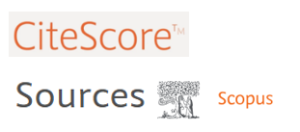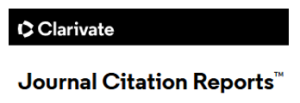Here you will find a selection of guides and tutorials for using the main databases and tools to support scientific publication and citation.
For more personalized assistance, you can always contact the Library team and request to schedule an in-person or Zoom session via the email address docinfo@ensp.unl.pt.
PubMed is a free reference database with over 35 million citations of articles published in the fields of Biomedicine and Health.

Scopus is a multidisciplinary reference database, developed by the publisher Elsevier, which includes scientific journals, books, and conference proceedings, with descriptions of indexed documents and their citations within the Scopus context, as well as other bibliometric indicators for complementary evaluation of science.
Official Elsevier Tutorials for Searching in Scopus.

Web of Science (WoS) is a platform that provides integrated access to reference databases such as the Web of Science Core Collection, MEDLINE, SciELO Citation Index, and Grants Index, with descriptions of indexed documents and their citations, as well as other bibliometric indicators for complementary evaluation of science.
The choice of a journal for publishing research results should be made carefully, taking into account the scientific, editorial, and ethical quality ensured by each title, the intended audience, and its level of openness to the general public, i.e., its open access policy.
In addition to these fundamental prior considerations, there are also bibliometric indicators for complementary evaluation of scientific journals, particularly impact indicators, which are updated annually – in the middle of the calendar year. These indicators are based on citation counts within a specific time frame and within the restricted context of the databases that provide them, such as CiteScore and SJR for journals indexed in Scopus, and the Impact Factor for journals indexed in Web of Science, among others.
Given the importance of open access publishing in the international and national scientific landscape, bibliometric tools for evaluating journals also allow filtering by access type.

Official Elsevier Tutorials on Search Results in Scopus Sources and CiteScore.

Official Clarivate Tutorials on the JCR.

The Scimago Journal & Country Rank is a free access portal that provides impact indicators applied to scientific journals and countries, based on information from the Scopus database. This project is developed by SCImago, a Spanish inter-university research group.
The Library team recommends the use of reference management tools, as they allow users to import, store, and organize references retrieved from database searches and catalogs, create bibliographies in different styles, and write and insert citations into the text of ongoing articles or papers automatically. However, their use does not replace the careful correction of imported records.
FREE TOOLS

Mendeley is a free reference management tool developed by the Dutch publisher Elsevier.
To download Mendeley, click here.

Zotero is a free reference management tool created by the Roy Rosenzweig Center for History and New Media at George Mason University and developed by Digital Scholar, a non-profit American technology organization.
To download Zotero, click here.
SUBSCRIBED TOOLS

EndNote is a reference management tool whose access depends on a subscription to the Web of Science platform by Clarivate, available only while part of the NOVA NSPH academic community, using institutional account credentials.
At NOVA NSPH, papers must follow the recommendations of the Guide for Preparing Academic Papers, which includes a section specifically dedicated to bibliographic references and citation styles, with practical examples.
In the field of Public Health, the most commonly used citation styles in scientific publications are as follows:
- Vancouver style: You can consult examples in the official Vancouver style guides here and here. To search for title abbreviations from the National Library of Medicine, click here.
- APA style: Official APA Style guides.
In the context of promoting Open Science and with the aim of making scientific results increasingly transparent and replicable, European and national funding agencies have been implementing best practices in Research Data Management (RDM), including the development of Data Management Plans and the promotion of depositing research data in trusted open repositories, following the FAIR principles (Findable, Accessible, Interoperable, and Reusable).
The Library staff recommends consulting the following guides, developed by the Research Data Management Forum*:
- 10 reasons to deposit research data in repositories;
- How to prepare data for deposit and publication in the repository;
- How to identify a reliable repository: Practical tips for researchers, data managers, and scientists.
* The RDM Forum resulted from the development of information and scientific data projects and infrastructures, within the scope of FCT-FCCN, the RCAAP project, and various research and higher education institutions, in the context of the development of the National Open Science Policy.
